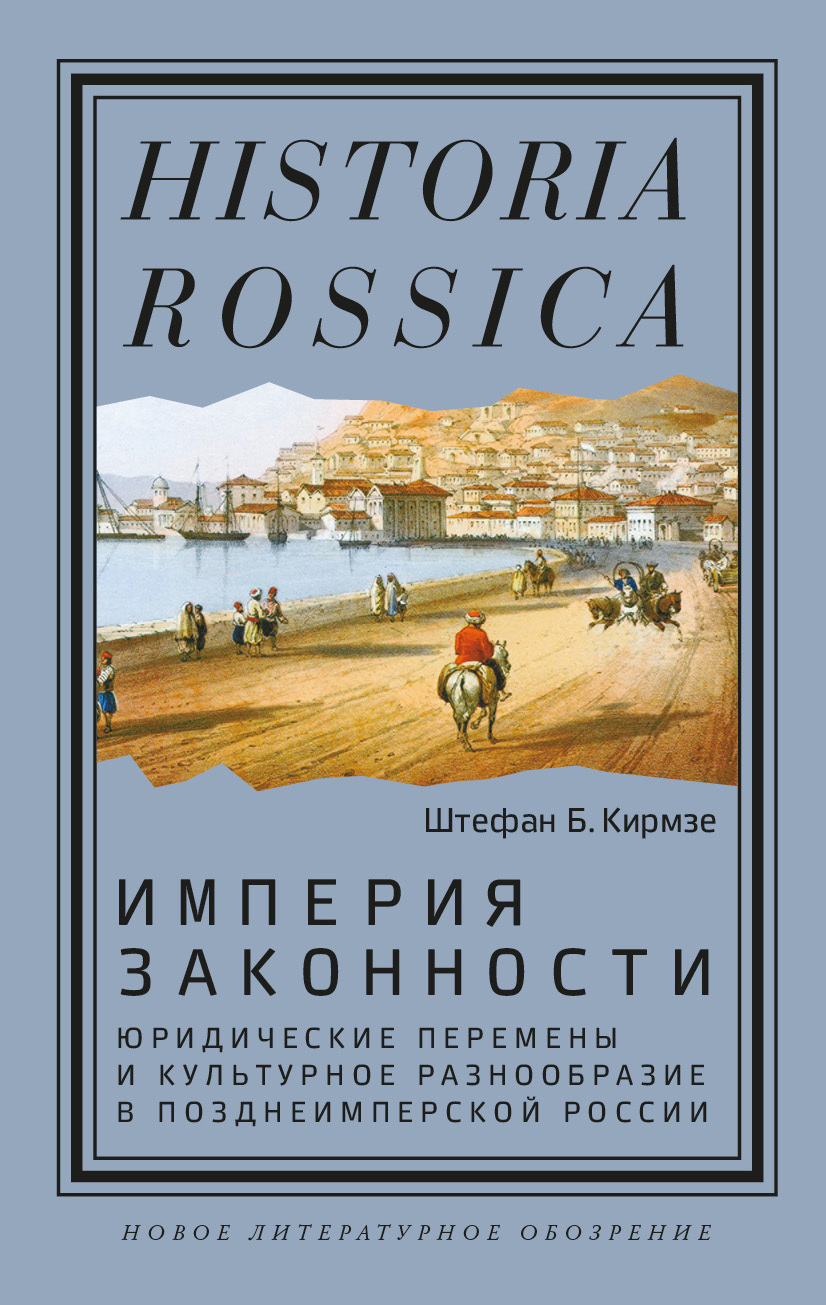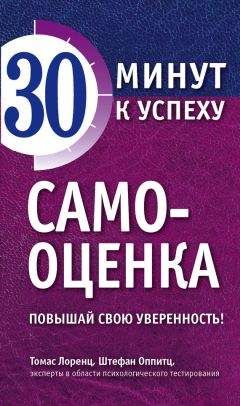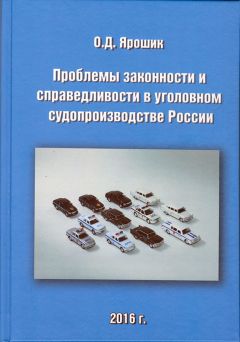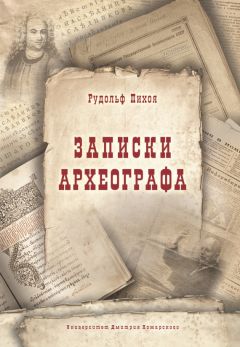Twentieth Centuries / Eds S. A. Dudoignon, H. Komatsu. London: Kegan Paul, 2001. P. 27–42.
Khodarkovsky M. «Ignoble Savages and Unfaithful Subjects»: Constructing Non-Christian Identities in Early Modern Russia // Russia’s Orient: Imperial Borderlands and Peoples, 1700–1917 / Eds D. R. Brower, E. J. Lazzerini. Bloomington, IN: Indiana University Press, 1997. P. 9–26.
Khodarkovsky M. Russia’s Steppe Frontier: The Making of a Colonial Empire, 1500–1800. Bloomington, IN: Indiana University Press, 2004.
Kirmse S. B. «Law and Society» in Imperial Russia // InterDisciplines. Journal of History and Sociology. 2012. Vol. 3. № 2. P. 103–134.
Kirmse S. B. Law and Interethnic Relations in the Russian Empire: The Tatar Riots of 1878 and Their Judicial Aftermath // Ab Imperio. 2013. № 4. P. 49–77.
Kirmse S. B. New Courts in Late Tsarist Russia: On Imperial Representation and Muslim Participation // Journal of Modern European History. 2013. Vol. 11. № 2. P. 243–263.
Kirmse S. B. Territorial Organization and Autonomy in Russian History // ZMO Working Papers 2022. № 34. P. 1–13.
Kivelson V. A. Cartographies of Tsardom: The Land and Its Meanings in Seventeenth-Century Russia. Ithaca, NY: Cornell University Press, 2007.
Kivelson V. A., Suny R. G. Russia’s Empires. Oxford: Oxford University Press, 2017.
Kizilov M. National Inventions: The Imperial Emancipation of the Karaites from Jewishness // An Empire of Others: Making Ethnographic Knowledge in Imperial Russia and the USSR / Eds R. Cvetkovski, A. Hofmeister. Budapest: Central European University Press, 2013. P. 369–394.
Klier J. D. Imperial Russia’s Jewish Question: 1855–1881. Cambridge, UK: Cambridge University Press, 2018.
Knight N. Science, Empire and Nationality: Ethnography in the Russian Geographical Society, 1845–1855 // Imperial Russia: New Histories for the Empire / Eds J. Burbank, D. L. Ransel. Bloomington, IN: Indiana University Press, 1998. P. 108–142.
Knight N. Ethnicity, Nationality and the Masses: Narodnost’ and Modernity in Imperial Russia // Russian Modernity: Politics, Knowledge, Practices / Eds D. L. Hoffmann, Y. Kotsonis. Basingstoke: Macmillan Press, 2000. P. 41–64.
Kohut Z. E. Russian Centralism and Ukrainian Autonomy: Imperial Absorption of the Hetmanate, 1760s–1830s. Cambridge, MA: Harvard University Press, 1988.
Kollmann N. Sh. Crime and Punishment in Early Modern Russia. Cambridge: Cambridge University Press, 2012.
Kollmann N. Sh. The Russian Empire 1450–1801. Oxford: Oxford University Press, 2017.
Kotsonis Y. «Face-to-Face»: The State, the Individual, and the Citizen in Russian Taxation, 1853–1917 // Slavic Review. 2004. Vol. 63. № 2. P. 221–246.
Kozelsky M. Casualties of Conflict: Crimean Tatars during the Crimean War // Slavic Review. 2008. Vol. 67. № 4. P. 866–891.
Kozelsky M. Christianizing Crimea: Shaping Sacred Space in the Russian Empire and beyond. DeKalb, IL: Northern Illinois University Press, 2010.
Kreindler I. Educational Policies towards the Eastern Nationalities in Tsarist Russia: A Study of the Il’minskii’s System. PhD Thesis. New York: Columbia University, 1969.
Krestiannikov E. A., MacKinnon E. Along the Routes of Justice: Judicial Circuit Riding in Western Siberia during the Late Imperial Period // Kritika. 2019. Vol. 20. № 2. P. 315–344.
Kriukova S. S. The Russian Peasant Family in the Second Half of the Nineteenth Century (Based on Materials from Riazan Province) // Russian Studies in History. 1999. Vol. 38. № 2. P. 31–47.
Kriukova S. S. Law, Culture, and Boundaries: Homestead Enclosure in the Russian Village of the Second Half of the Nineteenth Century // Anthropology & archeology of Eurasia. 2008. Vol. 47. № 2. P. 69–96.
Kucherov S. Courts, Lawyers and Trials under the Last Three Tsars. New York: F. A. Praeger, 1953.
Latino Empowerment: Progress, Problems, and Prospects / Eds R. E. Villarreal et al. New York: Greenwood Press, 1988.
Law in Culture and Society / Ed. L. Nader. Chicago: Aldine Pub. Co., 1969.
LeDonne J. P. The Provincial and Local Police under Catherine the Great, 1775–1796 // Canadian Slavic Studies. 1970. Vol. 4. № 3. P. 513–528.
LeDonne J. P. Criminal Investigations berfore the Great Reforms // Russian History. 1974. Vol. 1. № 1. P. 101–118.
LeDonne J. P. Absolutism and Ruling Class: The Formation of the Russian Political Order, 1700–1825. New York: Oxford University Press, 1991.
Legal Theory and the Social Sciences / Ed. M. Del Mar. London: Routledge, 2017.
Lewin M. Customary Law and Russian Rural Society in the Post-Reform Era // The Russian Review. 1985. Vol. 44. № 1. P. 1–19.
Lieven D. The Security Police, Civil Rights, and the Fate of the Russian Empire, 1855–1917 // Civil Rights in Imperial Russia / Eds O. Crisp, L. H. Edmondson. Oxford: Clarendon Press, 1989. P. 235–262.
Lieven D. C. B. Empire: The Russian Empire and Its Rivals. London: John Murray, 2000.
Lincoln W. B. In the Vanguard of Reform: Russia’s Enlightened Bureaucrats, 1825–1861. DeKalb: Northern Illinois University Press, 1982.
Lohr E. Russian Citizenship: From Empire to Soviet Union. Cambridge, MA: Harvard University Press, 2012.
Löwe H.-D. The Tsars and the Jews: Reform, Reaction, and Anti-Semitism in Imperial Russia, 1772–1917. Chur: Harwood Academic Publishers, 1993.
Löwe H.-D. Poles, Jews, and Tartars: Religion, Ethnicity, and Social Structure in Tsarist Nationality Policies // Jewish social studies. 2000. Vol. 6. № 3. P. 52–96.
Lynch D. F. The Conquest, Settlement and Initial Development of New Russia (The Southern Third of the Ukraine): 1780–1837. PhD Dissertation. New Haven, 1965.
Macauley M. A. Social Power and Legal Culture: Litigation Masters in Late Imperial China. Stanford, CA: Stanford University Press, 1998.
Maier C. S. Among Empires: American Ascendancy and Its Predecessors. Cambridge, MA: Harvard University Press, 2006.
Malcolmson R. W. Popular Recreations in English Society, 1700–1850. Cambridge, UK: Cambridge University Press, 1973.
Mankowski P. «Rechtskultur» — Annäherung an einen schwierigen Gegenstand // Rechtskultur in Russland: Tradition und Wandel / Hrsg. O. Luchterhandt. Berlin: Lit, 2011. S. 5–17.
Marrese M. L. A Woman‘s Kingdom: Noblewomen and the Control of Property in Russia, 1700–1861. Ithaca: Cornell University Press, 2002.
Marshall T. H. Citizenship and Social Class and Other Essays. Cambridge, UK: Cambridge University Press, 1950.
Martin T. The Empire’s New Frontiers: New Russia’s Path from Frontier to Okraina 1774–1920 // Russian History. 1992. Vol. 19. № 1–4. P. 181–201.
Martin V. Law and Custom in the Steppe: The Kazakhs of the Middle Horde and Russian Colonialism in the





